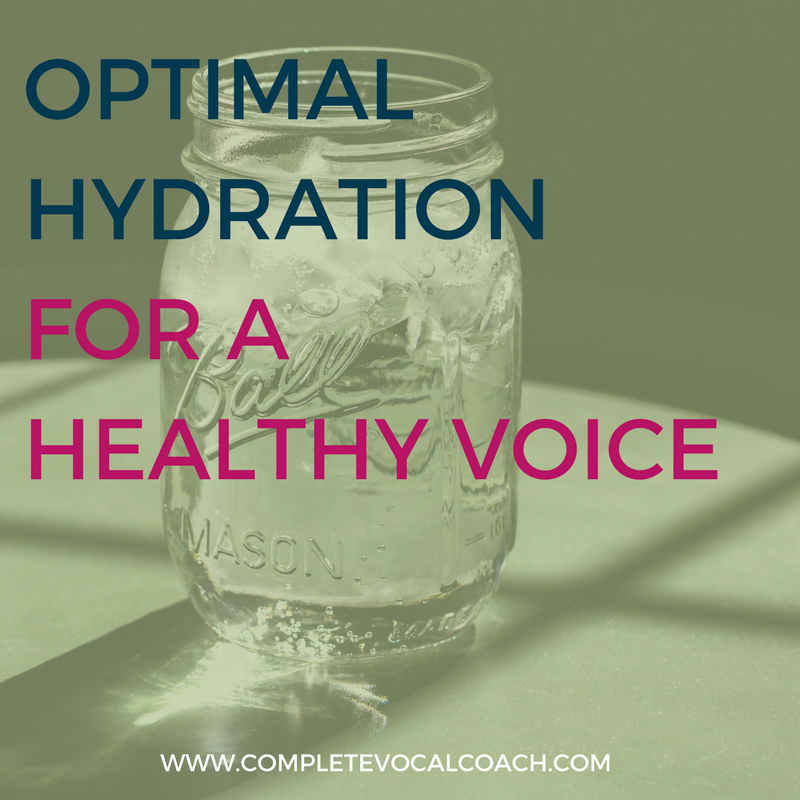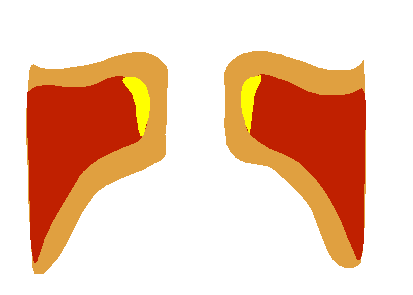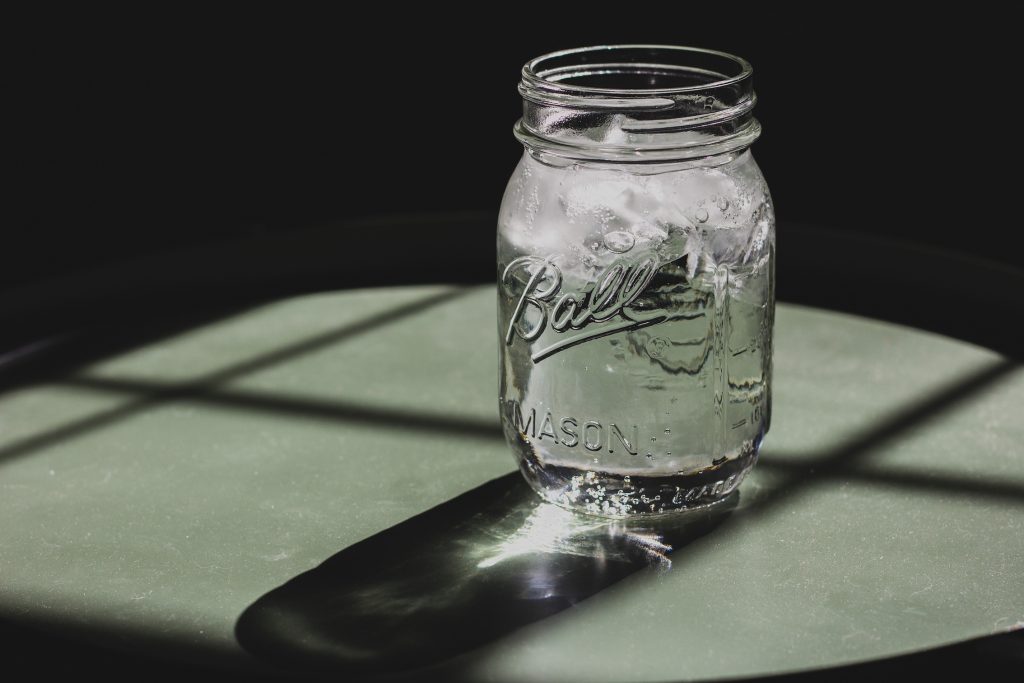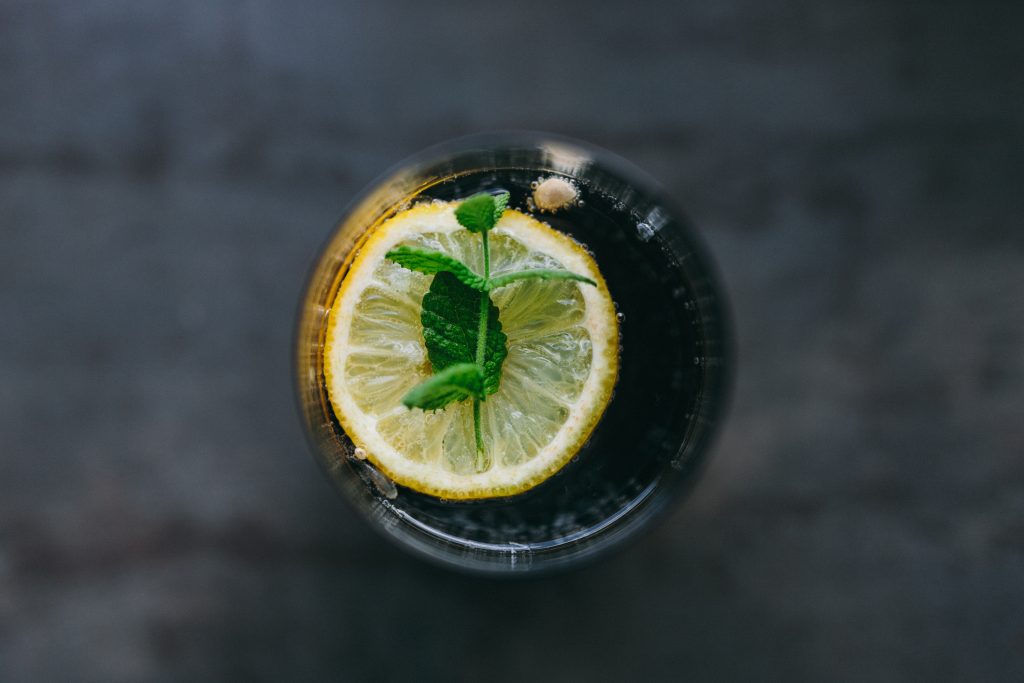We all know it’s important to stay hydrated, but why exactly is hydration so important for the voice? In this 2-part blog post series we’ll first dive into why keeping the vocal folds hydrated is important from an anatomical point of view, the different types of hydration there is (systemic and topical), and the various factors that affect hydration.
Finally, we’ll discuss why checking in on your vocal hydration plan from time to time is so important, especially if you’re a singer or professional voice user. Are you ready? Let’s dive in!

When I was a small girl growing up on the Finnish countryside, I used to love the animal-shaped jello desserts that my cousin’s British mother made. I can still remember poking on “the shivering duck” as it was lying there on my plate, waiting to be eaten up. But why am I telling you about jello while I’m writing about vocal fold hydration? Well, the vocal folds are made up of a jello-like substance too!
The vocal folds (also commonly known as the vocal cords) are very small but made up of quite a complex structure. The innermost part is the thyroarytenoid muscle (also known as the vocalis muscle). This muscle is covered with many layers of mucosa (called the lamina propria), which is soft, elastic and quite floppy – kind of like that jello! Thinking of the jello helps at least me to visualise how important it is to keep the mucosa of the vocal folds lubricated and flexible. If you’re wondering what happens with dried up jello, check out this video. Now, we don’t want our vocal folds to end up crunchy like that, do we?
Looking at the animation below might also help to visualise why keeping the vocal folds lubricated is so important. The image shows the vocal folds coming together and making vibrations. These vibrations are really fast: hundreds of times per second, depending on the pitch (lower pitches = slower vibrations, higher pitches = faster vibrations). Imagine how difficult it is to make these fast, flexible vibrations if the jello dries up, so to speak! The red part of the animation below represents the body of the vocal folds (the thyroarytenoid muscle), the yellow part represents what we call the vocal ligament (intermediate and deep laminae propria), and the orange part represents the mucosa of the superficial lamina propria.

The jello-like mucosa (lamina propria) is covered by a thin layer called the epithelium, think of that being similar to loose skin. Think about how your skin can get irritated and red when it becomes too dry. This is what happens with the vocal folds too: if you’re not well hydrated, this can lead to quicker irritation, redness and swelling in the vocal folds. Here you can find a slightly more in-depth explanation on the process of voice production and vocal fold vibration, with no jello stories 😉
Smooth vibrations
Being well hydrated helps the vocal folds vibrate smoothly and easily, and actually lowers the so-called Phonation Threshold Pressure (PTP). Phonation Threshold Pressure is the amount of lung pressure it takes to make the vocal folds vibrate. According to research by Dr. Kathrine Verdolini and others, fully hydrated vocal folds need less force to get together and vibrate. Another study shows that a reduction in body fluid even just short of dehydration results in increased effort in vocalisation. Fully hydrated mucosa of the vocal folds can also change shape better than dried mucosa. So considering the vocal folds need to change shape all the time during singing (they stretch and vibrate faster for higher pitches, and become shorter and vibrate slower for lower pitches), it’s a good idea to keep them moist for optimal performance.
More hydration = less gunk
Good hydration also makes the mucus that covers the vocal folds thinner. Notice that we’re talking thinner mucus instead of no mucus here. There’s always going to be some mucus on the vocal folds. Mucus is produced by the body to remove germs and debris. In normal situations, when the mucus is thin, we don’t really even notice it. But when it becomes thick, it becomes a problem especially for us voice users. So the best we can do is to make sure that mucus is as thin as possible, because that way it can keep moving through the body and doesn’t accumulate on the vocal folds.

Systemic hydration
Now that we know why hydration is so important for the voice, let’s have a look at the different types of hydration we can add to our ‘vocal hydration plan’. First, let’s have a closer look at the systemic hydration, in other words the the internal hydration of the entire body.
When it comes to systemic hydration, most people are familiar with the ‘pee pale’ rule as well as the recommended amounts of daily fluid intake. These are about 1,6 litres, 8 glasses of 200 ml each per day for women, and about 2 litres (10 glasses) for men. These general guidelines are not taking in consideration various factors though.
Factors that affect hydration
Physical activity increases the amount of fluid you need. So if you work out, dance, or sweat a lot, you need to compensate that in your fluid intake. This naturally also applies if you move and sweat a lot on stage.
Also, external factors like temperature and dryness of the air play an important part in the hydration-plan. I have a personal horror-story about this very thing from traveling with a show many years ago. After hours in the airplane, we arrived at the theater which had very hot, dry air. Not just did I feel the dryness, but my voice did not want to work with me at all! Moving flexibly throughout the range and transitioning through different volumes felt extremely difficult. The combination of the dry airplane air and the hot, dry theater air was just too much for the voice to handle.
Another factor that you need to consider, is the intake of dehydrating beverages like coffee, black tea, coke, other caffeinated beverages, and alcohol. Remember to compensate with water if you’re like me and enjoy a glass of wine from time to time, and don’t want to give up your espresso 🙂
Last but not least, some medications such as cold and allergy medications, including decongestants and antihistamines, have a drying effect to the body. You might want to check out this useful article, where one of British leading voice specialists, Dr Tom Harris discusses the effect on certain cold medications on the voice. In the footnotes of the article you’ll find examples on medicines containing decongestants and antihistamines. Also, I’d recommend you to consult your doctor to make sure you are using the medicines with the least drying effect on the voice.
Don’t wait until you’re thirsty
Did you know that it can take up to 4 hours for the water to reach your vocal folds? So the water you drink on stage or in the recording booth does not have any direct effect on the voice. Sip throughout the day, and don’t wait until you get thirsty.
If you want, you could make yourself small reminders about drinking enough water. It might sound a bit silly, but it works! A reminder could be as simple as keeping a pitcher filled with water by your desk: you’re more likely to drink when you actually see the water. There’s even apps that can remind you, check out Daily Water, Idrated or Waterlogged.
And speaking of ‘enough’, even water can be too much if consumed in masses! Water intoxication can even have fatal consequences, so everything with moderation.

Tastier water
A water filter helps you get cleaner, tastier water. The brand Brita makes pitchers and even water bottles with filters. I really like these and recommend you to check them out!
If you don’t like water, try flavouring it. My personal favorites include cucumber slices, sprigs of fresh mint, lemon or lime wedges, and pieces of peeled, fresh ginger.
Naturally, water is not the only source of hydration. A recent study showed other surprising beverages that help you stay hydrated. One of my own favourite sources of extra hydration is Aloe Vera. Because it is a medicinal plant, you shouldn’t use Aloe Vera juice daily for extended periods though.
Eat your water
Adding fruit and vegetables that contain a lot of water to your diet, also helps you stay hydrated. Foods that contain a lot of water include for example: cucumber, iceberg lettuce, cauliflower, broccoli, melon, strawberries and grapes.
Next week we’ll have a closer look at what to do about external de-hydrating factors, and how to apply or increase topical hydration. The word ‘topical’ means something is applied directly to a part of the body, in this case the vocal folds. We’ll also find out why it’s useful for singers and professional voice users to check in on and adjust their ‘vocal hydration plan’ from time to time.
Image / photo credits: Reinhard via Wikimedia Commons, Ethan Sykes, Kaboompics.com
